May 5, 2024 | 23:33 GMT +7
May 5, 2024 | 23:33 GMT +7
Hotline: 0913.378.918
May 5, 2024 | 23:33 GMT +7
Hotline: 0913.378.918
The Plant Protection Department (PPD) has recently worked with the Department of Agriculture and Rural Development of Tien Giang Province on the management of planting area and packing facility codes for export in the locality.
According to Vo Van Men, Director of the Sub-Department of Cultivation and Plant Protection of Tien Giang Province, Lo Ren Vinh Kim Star Apple planted in the area has registered and been granted a planting area code (PAC) for exportation to the US.
This is an opportunity and a premise to promote the export fruit industry in a safe and sustainable direction, he added.
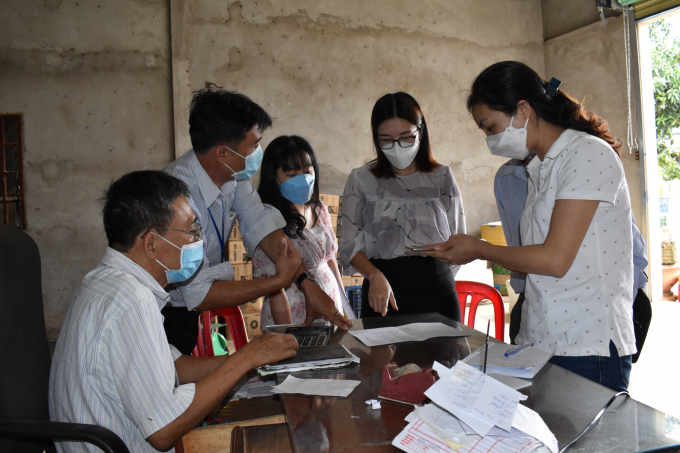
The delegation of Plant Protection Department worked at Hai Quy fruit business (Vinh Kim Commune, Chau Thanh District, Tien Giang Province). Photo: Minh Dam.
In the period of 2018 - 2020, a total area of over 19,000 ha in Tien Giang Province has been granted 281 PACs, 127 of which granted to an area of over 17,200 hectares that grow six types of fruits for export to the Chinese market, including jackfruit, dragon fruit, mango, watermelon, banana and rambutan.
The remaining PACs were granted to an area of over 1,800 ha growing four types of fruits, including dragon fruit, mango, rambutan and star apples, for export to other fastidious markets such as the US, Japan, South Korea, Australia and New Zealand.
The province also submitted three dossiers to the Plant Protection Department to request the issuance of durian PAC and is waiting for the approval of the General Department of Customs of China.
Meanwhile, 728 packing facilities in Tien Giang Province were granted with codes from 2018 to 2020, most of which serve the Chinese market with 721 codes and the rest serve the US, Australia and New Zealand.
In 2012 in particular, Tien Giang issued a new packing facility code (PFC) while sending seven dossiers (6 for durian and 1 for chili) to the Plant Protection Department, requesting the issuance of PFCs. The province is waiting for the decision of the General Administration of Customs of China.
PPD and the Sub-Department of Cultivation and Plant Protection of Tien Giang Province have closely coordinated in inspection and supervision of such codes.
By now, 151/281 PACs and 524/728 PFCs in the province have been verified and monitored, from which, 32 growing areas and 466 packing facilities have been detected to be disqualified.
The Sub-Department of Cultivation and Plant Protection of Tien Giang Province has proposed the PPD to withdraw 2 and cancel 30 PACs; withdraw 15 and withdraw 451 PFCs. Another 15 packing facilities need to be improved to be qualified for the PFCs in the near future.
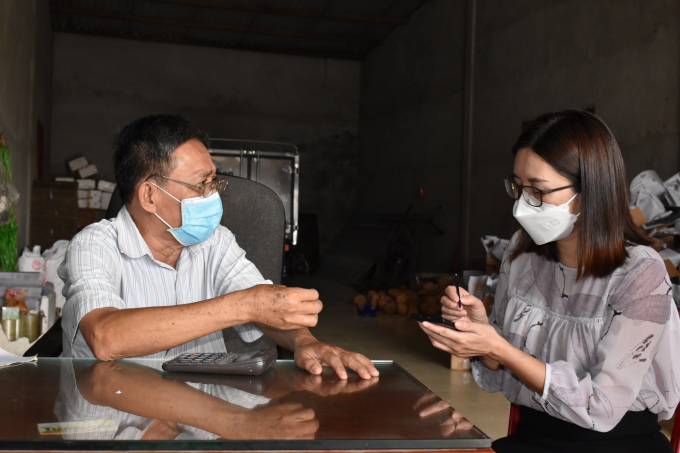
Nguyen Thi Thu Huong, (right) Deputy Director of the PPD. Photo: Minh Dam.
Explaining the reasons, Men said that the codes are withdrawn because the growing areas are small and fragmented or converted to other crops. Besides, some areas are intercropped with other plants, making it difficult to manage harmful organisms, or the planting area has no farming log.
Many PFCs have been recalled or cancelled because the facilities do not have relevant records and papers that are qualified for food safety. They might also have no packaging process as they mainly process and package for export companies or not directly purchase the products from the growing areas that have been granted codes.
For example, the owner of Hai Quy facility (Vinh Kim Commune, Chau Thanh District, Tien Giang Province), Tran Nang Quy, said that he only bought and sold fruits at the local markets and Binh Phuoc instead of growing areas and not for export, so the the Sub-Department has requested to withdraw the PFC of this facility.
Meanwhile, quite a few units and businesses are presently in dire need of PACs and PFCs, like Vinh Kim Cooperative that is the major business unit of Tien Giang province's fruits such as dragon fruit, durian, jackfruit or sapo. The annual output of the cooperative is about 10,000 tons.
“Vinh Kim Cooperative has applied for the issuance of PACs and PFCs to officially export fruits to China in the past two years. Small-quantity export is currently expensive and has many potential risks, especially in financial terms,” said Nguyen Thanh Son, Chairman of the Board of Directors of the cooperative.
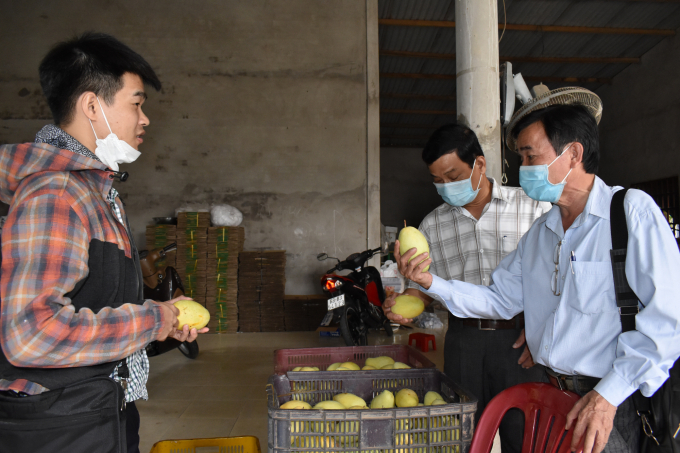
The delegation checked the record of origin and types of agricultural products at packing facilities. Photo: Minh Dam.
Nguyen Thi Thu Huong, Deputy Director of the PPD said that the improper management would greatly affect the issuance of PACs and PFCs.
In the coming time, the PPD will continue to coordinate with Tien Giang Department of Agriculture and Rural Development to review all PACs and PFCs in the province.
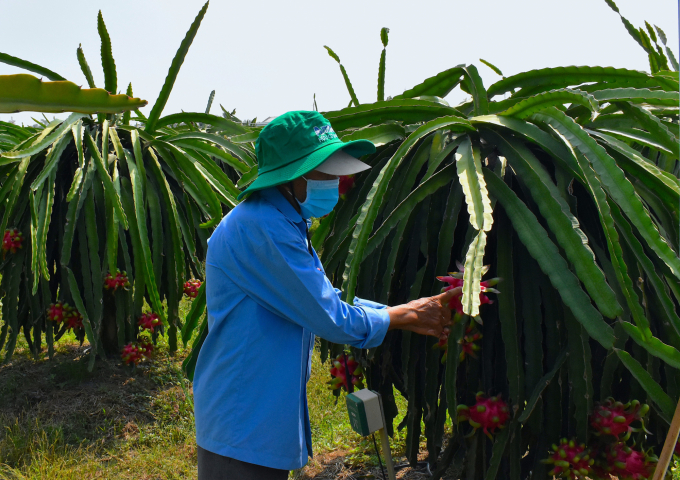
The granting of planting area codes is very important for export. Photo: NNVN.
According to her, Tien Giang is one of the localities in the country that have the largest number of issued PACs and PFCs.
However, it is also the locality with the largest number of recalled codes and the growing areas granted with codes is small compared to the total fruit growing areas in the province.
The low rate of inspection will greatly affect not only the quality of PACs and PFCs but also the reputation and quality of Vietnam's agricultural products.
As the review, supervision, and management of PACs and PFCs were still slow, she suggested that the Department of Agriculture and Rural Development of Tien Giang province pay attention, come up with a mechanism for coordination and assign responsibilities among relevant local organisations.
Translated by Phuong Ha
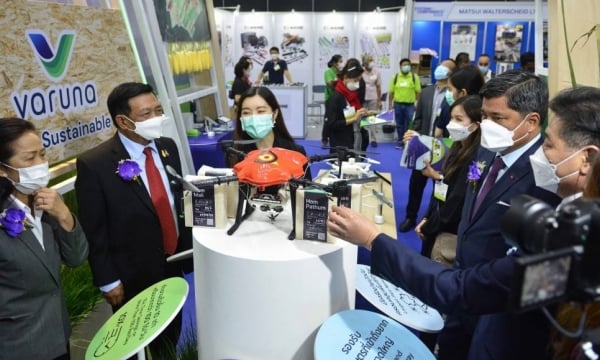
(VAN) Agritechnica Asia & Horti Asia 2024 takes place from May 22-24, 2024, at the Bangkok International Trade & Exhibition Centre (BITEC), Thailand.
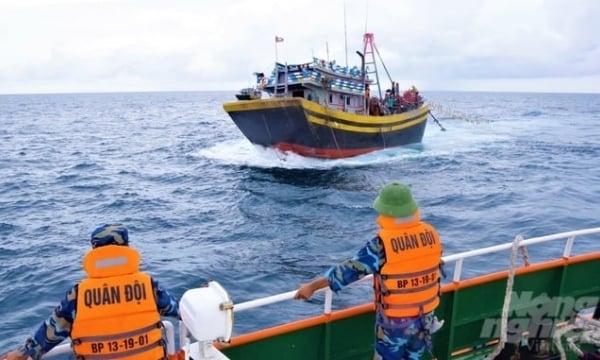
(VAN) Border Guard Command of Binh Thuan and Ba Ria- - Vung Tau coordinate to enhance strict management over fishing vessels to remove the EC 'yellow card'.

(VAN) With the aim of supporting the transition to HDPE aquaculture, STP Group introduced three support packages to provide fishermen access to new mariculture technologies.
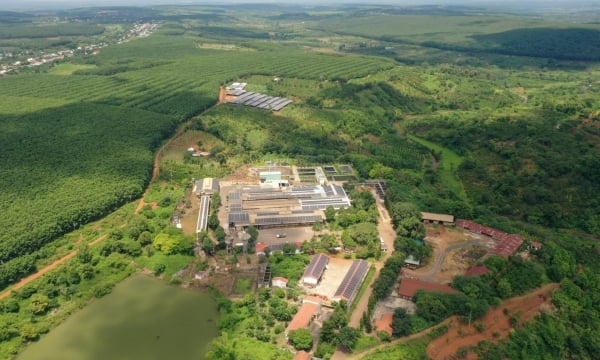
(VAN) The Vietnam Rubber Group (VRG) is collaborating with the Office of Sustainable Forest Management Certification and the Institute of Forestry Science to plan for implementation of EUDR regulations beginning in June 2023.
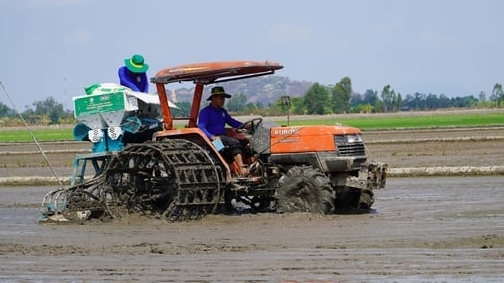
(VAN) According to the draft payment scheme for emission reduction results from the Project for one million hectares of high-quality rice, farmers in cooperatives and cooperative groups will be the primary beneficiaries.
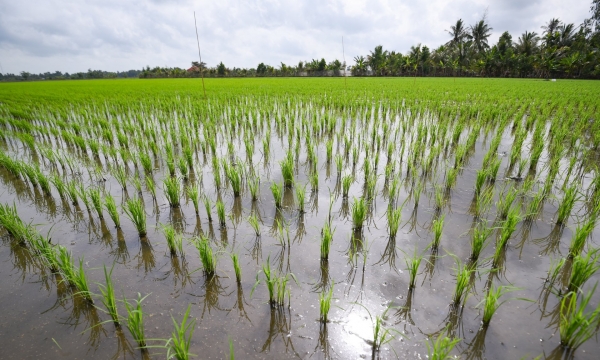
(VAN) Minister Le Minh Hoan has urged for a solution to effectively communicate the benefits of applying emission-reducing agriculture practices in the 1 million hectares of high-quality rice project in the Mekong Delta.
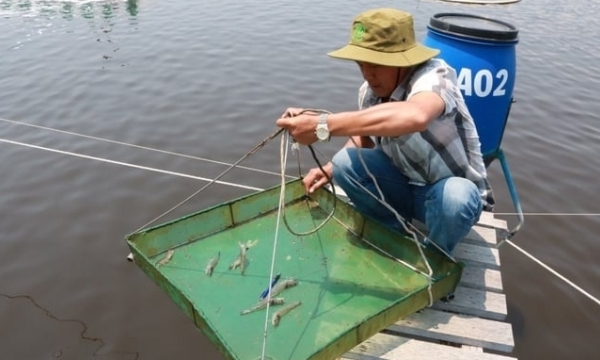
(VAN) According to the Department of Animal Health, Vietnam currently has 32 disease-free shrimp production facilities nationwide, including 27 facilities with a post larvae capacity of 38 billion per year.